World Geography And Politics Daily News | 30 Jun 2023

Views (132)
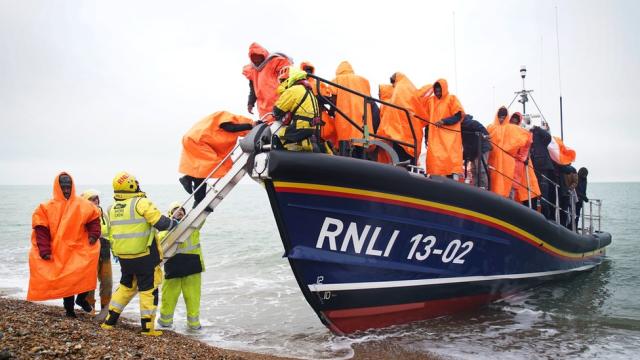
Putin begins post-mutiny purge as ‘General Armageddon’ reportedly detained and deputy fired
A top Russian general has reportedly been detained after Vladimir Putin launched a purge targeting supporters of the Wagner mutiny at the weekend.

The Financial Times on Thursday reported that the general had been detained, citing three sources familiar with the matter.
Reports about Gen Surovikin’s arrest first surfaced on Wednesday night when a pro-war Russian blogger said the general had been taken to the FSB’s notorious Lefortovo prison in Moscow.
But later on Thursday, a media outlet with close links to Russia’s FSB security service published an interview with an unnamed daughter of Gen Surovikin who insisted he was not arrested.
“Nothing happened to him. He’s at work,” the woman told Baza.
It came as satellite imagery appeared to show rapid building activity at a military base in southern Belarus, prompting speculation that Wagner troops would relocate to the country.
The images appeared to show rows of tents being built at the previously vacant military facility near the town of Asipovichy, about 50 miles from Minsk.
The FSB earlier this week dropped the criminal investigation into the mutiny but it was unclear if Gen Surovikin and others might be questioned as part of another probe.
Josep Borrel, the EU’s foreign policy chief, appeared to confirm the reports on Thursday, saying Putin had launched a crackdown targeting those with ties to the mutineers.
“Some generals have been arrested so I suppose that Putin will be in a cleaning mode internally,” he said.
Meanwhile, Gen Surovikin’s deputy, Colonel-General Andrei Yudin, has now been fired from the Russian army in the fallout from the weekend’s aborted mutiny, according to Aleksey Venediktov, the former editor-in-chief of Echo of Moscow.
Col-Gen Yudin told the Ura.ru website on Thursday that he was “at home on leave”.
Several governors and other officials openly sided with Prigozhin during his feud with the defence ministry and Gen Gerasimov, the army chief.
A Kremlin spokesman on Thursday refused to comment on the whereabouts of Gen Surovikin or reports that he has been detained.
Asked by reporters if the Kremlin could clarify the situation with Gen Surovikin, Dmitry Peskov said: “No, unfortunately not.”
Sergei Markov, a former member of parliament and a Kremlin-linked political scientist, on Thursday said the authorities should “show Surovikin to everyone” or Russians “might think of large-scale, secret arrests”.
Mr Markov also said the general is likely to be questioned not as a suspect but “as a very informed” source.
“Surovikin was the main in-between for the defence ministry and Wagner so he knows more than anyone else,” he said.
Biden’s Iran envoy benched amid investigation, security clearance suspension: reports
Rob Malley, a U.S. special envoy for Iran, has been placed on leave due to a security clearance suspension earlier this year which resulted in an investigation. A U.S. official told CNN Thursday that his clearance was suspended after the State Department conducted an investigation into the possible mishandling of classified documents. While Malley remained…
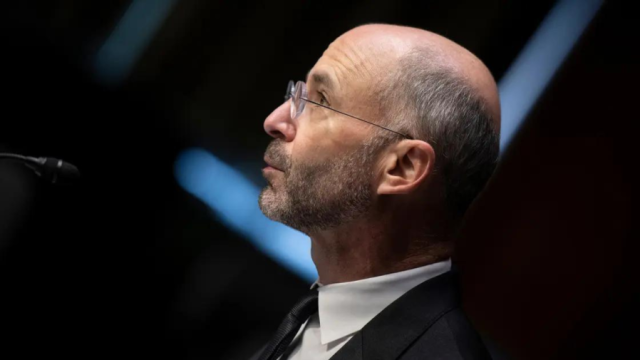
Rob Malley, a U.S. special envoy for Iran, has been placed on leave due to a security clearance suspension earlier this year which resulted in an investigation.
State Department spokesperson Matt Miller confirmed that Malley was benched, adding that Abram Paley will serve as the acting special envoy to Iran for the U.S., according to CNN.
“Rob Malley is on leave and Abram Paley is serving as acting Special Envoy for Iran and leading the Department’s work in this area,” Miller told the news outlet.
Malley, who was appointed to his position two years ago, confirmed that his security clearance is under review, noting in a statement that he expects the investigation to be “resolved favorably and soon.”
“I have been informed that my security clearance is under review. I have not been provided any further information, but I expect the investigation to be resolved favorably and soon. In the meantime, I am on leave,” Malley told CNN.
The move comes as Malley, who was a prominent player in working to secure the release of detained Americans in Iran, has remained excluded from the ongoing Iran nuclear deal talks.
The Hill has reached out to the State Department for additional comment.
Department officials last year said that reviving the nuclear deal with Iran, which was nixed under former President Trump in 2018, was not their main focus. This came as protests between Iranian authorities and residents intensified following the death of 22-year-old Mahsa Amini in the custody of the country’s Morality Police, CNN reported.
China's economic recovery is 'doomed to fail' as Beijing shifts away from investment, think tank experts say
Chinese President Xi Jinping will likely back away from his plans for consumption-led growth, two experts predicted.
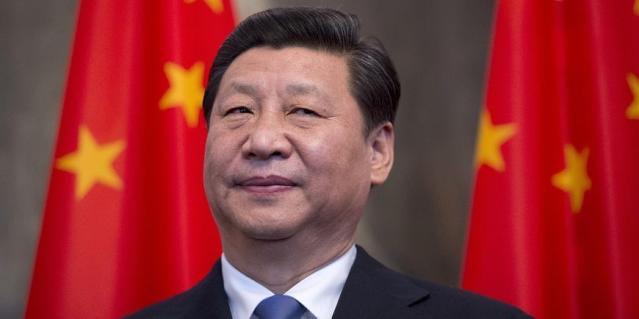
China's economic recovery is practically doomed, experts from the Council of Foreign Relations said in an op-ed.
The Chinese government has launched a plan for consumption-led growth, meaning the nation will shift away from investment.
But that's likely to ispark intense backlash, experts warned.
China's economic recovery is doomed, as President Xi Jinping will likely abandon his plan to shift the economy away from its reliance on investment, according to think tank experts.
Late last year, the Chinese government announced an ambitious 12-year plan that involves expanding household consumption to drive the economy, shifting away from investment over the long term.
"Sensible though it is, consumption-led growth in Xi's China is doomed fo fail. As Xi has done so often in the past, he will back away from the policy once the inevitable backlash from powerful constituencies, including state-owned enterprises, local governments, and the national security bureaucracy, takes hold," Liu and Steil said.
Beijing already appears to be going back to its old playbook to boost growth, which will land China in more debt, they added.
Officials have stepped in to prop up key sectors of its economy, and are unlikely to depend on households to ramp up spending in those areas, Liu and Steil said.
Consumption-led growth is likely to upset key constituents as well.
"After years of claiming credit for robust, nationwide, building-bloated urban growth, the central government will not escape the ire of unpaid municipal workers, the businesses catering to them, and the netizens supporting them on social media," Liu and Steil said.
Rwanda policy: Government committed to deportation plan - Braverman
The home secretary calls critics of the scheme "phoney humanitarians" after judges ruled it was unlawful.
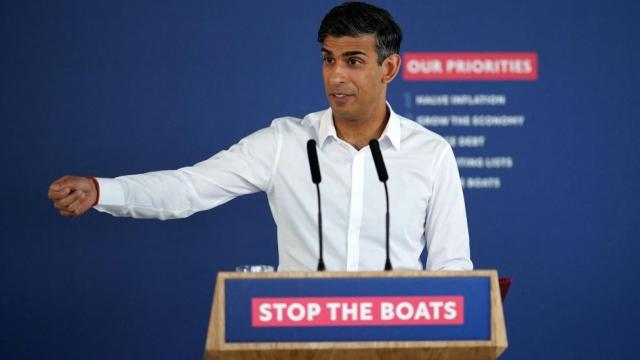
The government is committed to ending cross-Channel migrant boats despite a court ruling its Rwanda policy is unlawful, the home secretary has said.
Suella Braverman told MPs she would do "whatever it takes to stop the boats."
Her comments came after judges at the Court of Appeal ruled that the plan to send asylum seekers to the African country could also breach human rights. The government says it will appeal.
Labour says the plan is "unethical" and Ms Braverman is "ramping up rhetoric".
Asylum Aid, the charity which brought the legal challenge, said the decision taken by the court on Thursday was a "vindication of the importance of the rule of law and basic fairness".
The plan to send people who arrive in the UK illegally to Rwanda was first unveiled in April 2022 in an attempt to deter crossings on the English Channel on small boats.
It has been subject to several legal challenges, including the latest at the Court of Appeal where judges ruled that Rwanda had not provided enough safeguards to prove it is a "safe third country".
Two out of the three judges found that there was a risk that asylum seekers sent to Rwanda could then be forced back to the country from where they were originally fleeing. This means the UK government's immigration policy contravenes the European Convention on Human Rights, which protects against torture.
However Ms Braverman said this did not mean that Rwanda itself was not safe.
The home secretary told MPs she respected the judgement, but added it was "disappointing" and that the government would be challenging it.
Ms Braverman said that the "abuse" of the asylum system was "unfair" on local communities, taxpayers and "those who play by the rules".
She added that it "incentivises mass flows of economic migration into Europe, lining the pockets of people smugglers and turning our seas into graveyards, all in the name of a phoney humanitarianism".
Shadow home secretary Yvette Cooper said the government's Rwanda scheme was "completely unravelling" and described it as "unworkable, unethical and extortionately expensive."
"This is their chaos, their Tory chaos, their boats chaos and their broken asylum system," she said.
She also accused the home secretary of "wasting everybody's time" on "ramping up the rhetoric rather than coming up with a serious plan".
The Rwandan government insisted it was "one of the safest countries in the world" and had been recognised for its "exemplary treatment of refugees".
The case was brought by Asylum Aid, which argued the policy was unlawful, as well as 10 people from countries including Syria, Iraq and Albania, who arrived in the UK in small boats.
The High Court had backed the government's policy at an earlier hearing, but that decision was scrutinised by Appeal Court judges Lord Chief Justice Lord Burnett, Sir Geoffrey Vos and Lord Justice Underhill in this latest stage of the process.
While Lord Burnett sided with the UK government, the others concluded that the assurances from the Rwandan government were not "sufficient to ensure that there is no real risk that asylum seekers relocated under the Rwanda policy will be wrongly returned to countries where they face persecution or other inhumane treatment".
They said that sending asylum seekers to Rwanda will be unlawful "unless and until the deficiencies in [its government's] asylum processes are corrected".
The judges stressed that they all agreed that the Rwandan government's assurances of the policy had been made "in good faith".
Tessa Gregory, a partner at law firm Leigh Day which represented Asylum Aid in the case, said: "We are delighted that the Court of Appeal has ruled that the Rwanda removals process is unlawful on grounds of safety."
It acknowledged that not all of the charity's challenges had been accepted by the court, but said the ruling had affirmed there are "clear deficiencies" with the policy.
Other human rights groups have welcomed the court's decision, with Freedom From Torture describing it as a "victory for reason and compassion".
The Rwanda policy has hit several roadblocks since it was first announced last April.
The first deportation flight was halted minutes before it was due to take off after a legal challenge was granted in June 2022.
In December, the High Court decided that the plan did not breach the UN's Refugee Convention - which sets out the human rights of anyone seeking asylum - and ruled that it was legal.
But the following month it was decided that some of the parties in that case should be allowed to appeal against elements of that decision - and have the case heard by the Court of Appeal.
This week the Home Office said it expects it to cost £169,000 for every person deported and processed under the Rwanda scheme - more than it currently costs to house an asylum seeker in the UK.
But the same analysis warned rising accommodation costs could mean the cost of housing an asylum claimant in the UK could be £165,000 per person within four years.
The Home Office says it currently spends almost £7m a day on hotel accommodation to house asylum seekers.
Prime Minister Rishi Sunak has said he respects the court's decision but he will do "whatever is necessary" to disrupt criminal gangs operating small boat crossings.
Asked after the ruling if the government was confident the first deportation flight would take off before the next general election, a Downing Street spokesman said it could not "put a timetable on that".
Biden’s doctors say he’s fine. But is he really?
Was it the way President Joe Biden confused the Ukraine and Iraq wars twice in 24 hours, claiming “Putin is losing the war in Iraq”, that had the world worrying about his health again?
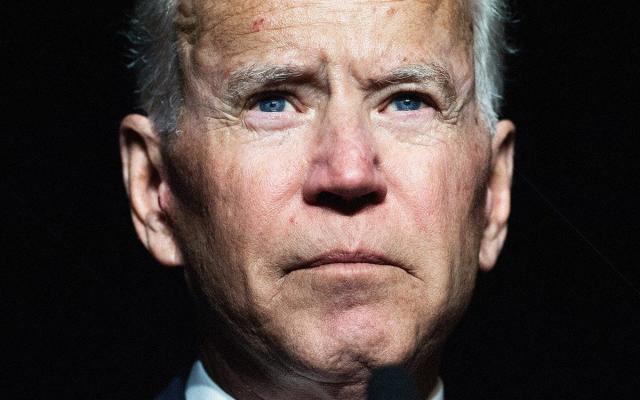
Was it the way President Joe Biden confused the Ukraine and Iraq wars twice in 24 hours, claiming “Putin is losing the war in Iraq”, that had the world worrying about his health again?
“You can potentially run at the age of 80. But you can’t run at the age of 80 if you appear to have serious health problems. And there’s enough of a possibility that he has [problems] to make the prospect worrying for America and therefore for everyone else.”
But what are the health concerns that have beset him?
The sleep disorder, while common, can potentially be serious. Sleep apnea is when breathing can stop and start in the night. Left untreated it may cause symptoms including forgetfulness, fatigue and sleepiness.
Age is one of several factors that increases the risk of developing sleep apnea. It can ultimately lead to cardiovascular disease because of the significant strain it can put on the heart, according to studies.
A CPAP (“continuous positive airway pressure”) machine pumps air through a tube to a mask strapped on to the user’s nose. The pressure of the air being delivered keeps their airway open.
“This is due to the body secreting cortisol into your system, simply to avoid suffocating in your sleep! Sleep deprivation is one of the strongest causes of cognitive decline.”
Pronounced throat-clearing has become a hallmark of Biden’s public speaking. The cause according to his team is gastroesophageal reflux that is often brought about after he eats.
The acid reflux was first reported after Biden’s November 2021 physical examination. It was added that an examination of Mr Biden’s lungs, a chest X-ray and a measurement of his oxygen saturation showed normal results, and noted that the president will continue to take Pepcid to treat the acid reflux.
“This is a non-malignant cancer which normally does not cause any problems with spreading elsewhere and is easily removed with no long term adverse sequelae,” says Dr Hussain.
Cancer is strongly linked to ageing. “This is why scientists now describe ageing as a disease, as around 90 per cent of diseases are age-related,” says Pemberton. “In future our leaders might be judged more on their biological age rather than their chronological age!”
“He has confirmed osteoarthritis of the foot and spine which impacts his mobility due to stiffness (and potentially pain),” says Dr Hussain. “If this worsens this could require increased pain medication, anti-inflammatory medication or even operative intervention in the worst case scenario.
“His lipid level – lipids are fat-like substances found in your blood and body tissues – is controlled by statin tablets so there is no issue with his cholesterol profile.
Mixing up the wars in Ukraine and Iraq are not the first time he’s made such gaffes.
“The saying ‘age is just a number’ is true to a level in meritocracy, but when the signs of a mental and physical decline are becoming more apparent, is it ageism?”
Dr Hussain agrees: “From the videos we’ve all seen of him on stage giving speeches, his cognitive functioning is below par and in my opinion he has some level of cognitive decline, possibly early stage dementia – that’s absolutely clear from his clinical situation.”
“Ageing is a physiological process and as we age our functioning both physically and mentally diminishes. It is impossible to avoid. We become less able both physically and mentally. Our ability to move and function at the level we did when we were younger diminishes. Equally, our cognitive abilities will decline,” says Dr Hussain.
The aforementioned arthritis and foot issues of course contribute to the reduction in his mobility. “There’s no doubt his health is deteriorating,” says Dr Hussain. “From a clinical point of view, I would not be advising him to run for re-election because the enormity of the role at his age and level of ability is likely to be too great – and his health from this point could deteriorate rapidly.
Rwanda: Court of Appeal decision raises difficult questions
The ruling puts the government under pressure to solve the issue of where to house asylum seekers.
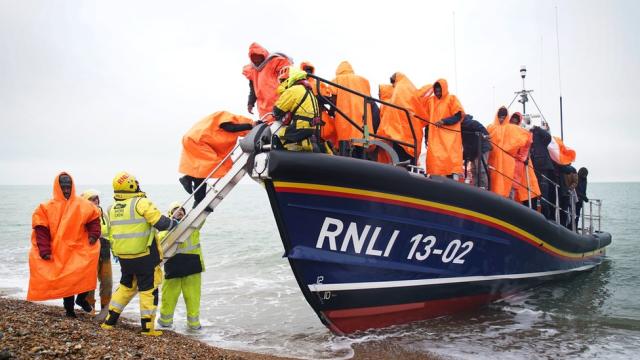
The Rwanda result at the Court of Appeal is the worst possible world for the government in both legal and political terms.
Two judges have declared the government has broken the law on claiming Rwanda is safe.
This ruling came down to the strength of arguments presented by the UNHCR, the United Nations' refugee agency, which intervened in the case as the acknowledged experts.
The court did not rule against the principle of off-shoring asylum claims to a third country.
But politically, even that raises a very difficult question: where is the government proposing to send people, if not to Rwanda?
And that's why this saga has become a quagmire which may run up against a ticking general election clock, a point I will come back to.
The central question for the Court of Appeal was this: is Rwanda a safe and reliable place that would give asylum seekers a fair hearing?
There was a mountain of evidence from the UNHCR, and even the government's own officials, that Rwanda's record on handling asylum applications was poor.
On the other hand, ministers said Rwanda had given copper-bottomed guarantees and diplomatic assurances of fair treatment.
It's the reliability of those assurances - given in good faith, it was heard - that has crashed and burned at the Court of Appeal.
By two to one, a majority of the court's three judges found Rwanda's asylum system was so poor that sending someone there would amount to breaching their right not to be tortured or subjected to inhuman treatment. They could be sent back to their home countries, potentially to their deaths.
The soon-to-retire Lord Chief Justice disagreed, concluding that it was unlikely this would ever happen. Rwanda, he said, had no agreements in place to send asylum seekers back to their home countries - and the UK had a monitoring plan.
So that's why the government wants to appeal to the Supreme Court - but it must first convince the judges to give it permission.
Ministers must show there is a "point of law of general public importance."
The split ruling means a Supreme Court appeal looks likely - but there could also be counter-appeals from the claimants who lost on some of their important points.
One of these could come from the charity Asylum Aid.
It had argued that it simply wasn't lawful to give asylum seekers just seven days to make representations against their transportation to Rwanda - potentially without the help of an expert lawyer while they're in prison-like conditions.
The Court of Appeal's 161-page judgment shows it had genuine reservations about whether this was fair.
But it decided it could be lawful, providing the Home Office had proper safeguards in place.
The claimants say there's no evidence these exist - such as proper guidelines for the officials deciding a migrants' fate.
"There are clear deficiencies in the process, some of which have been recognised by the court," says Tessa Gregory, the charity's lawyer.
"Asylum Aid will consider whether it is necessary to appeal."
The ruling also has implications for Parliament.
That controversial legislation would require the home secretary to send most of the people who cross the English Channel to claim asylum to third countries.
But which countries?
"Even with a Rwanda deal in place, it has never been clear how easy this would be," says Dr Peter William Walsh of Oxford University's independent Migration Observatory.
"If there are no safe third countries accepting the UK's asylum seekers, the core idea behind the policy can't be implemented.
"In essence, all the eggs are in one basket and this basket is looking fragile."
What's clear is that time is running out.
Assuming judges grant the government's wish and send the case to the Supreme Court, the case probably won't be considered before September or October.
And that means its judgment might not come until the end of the year, or early in 2024.
If the government won, each person allocated to a proposed new flight, perhaps in February or March, may be able to challenge their inclusion.
There could still be individual claims to the European Court of Human Rights.
And all of this in a countdown to a General Election.
0 Likes
